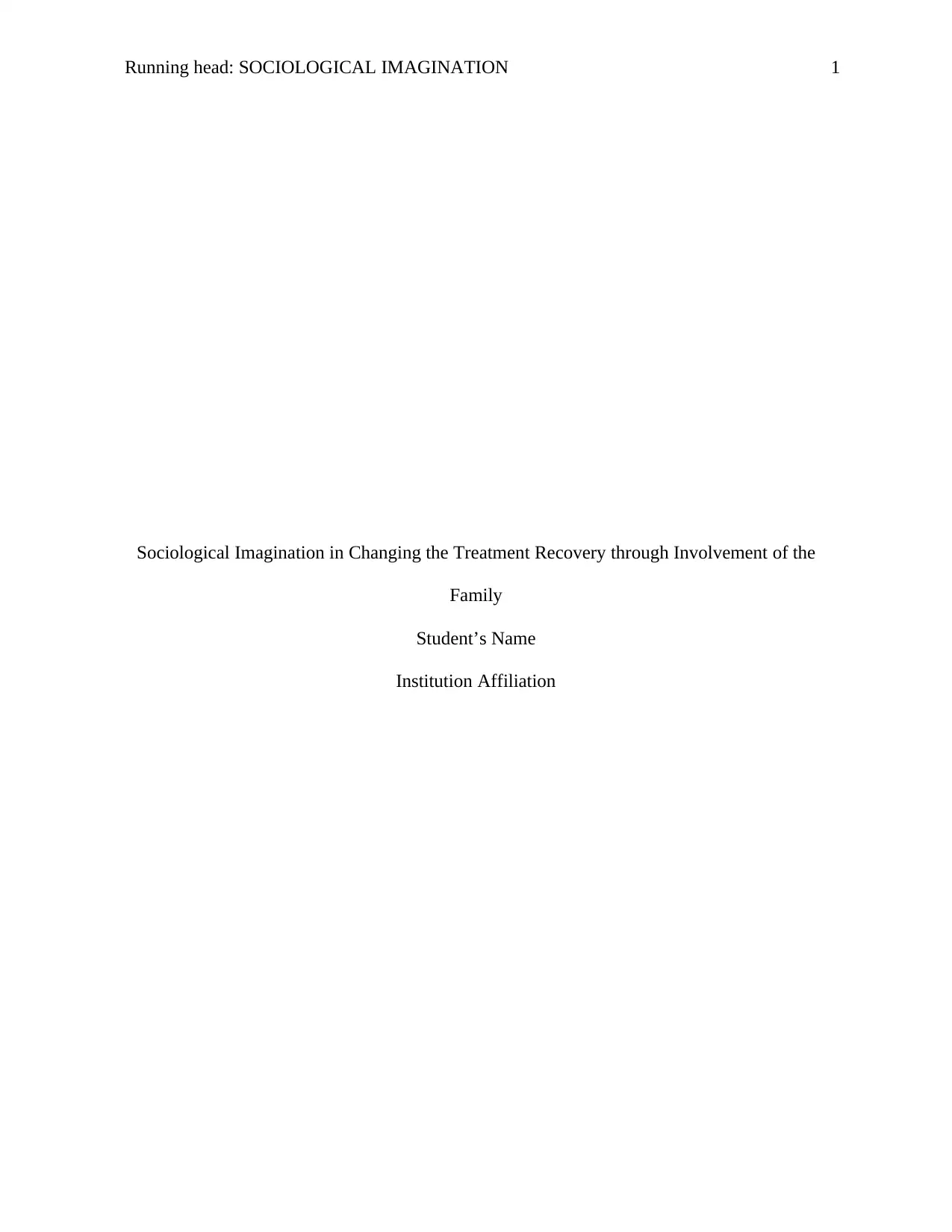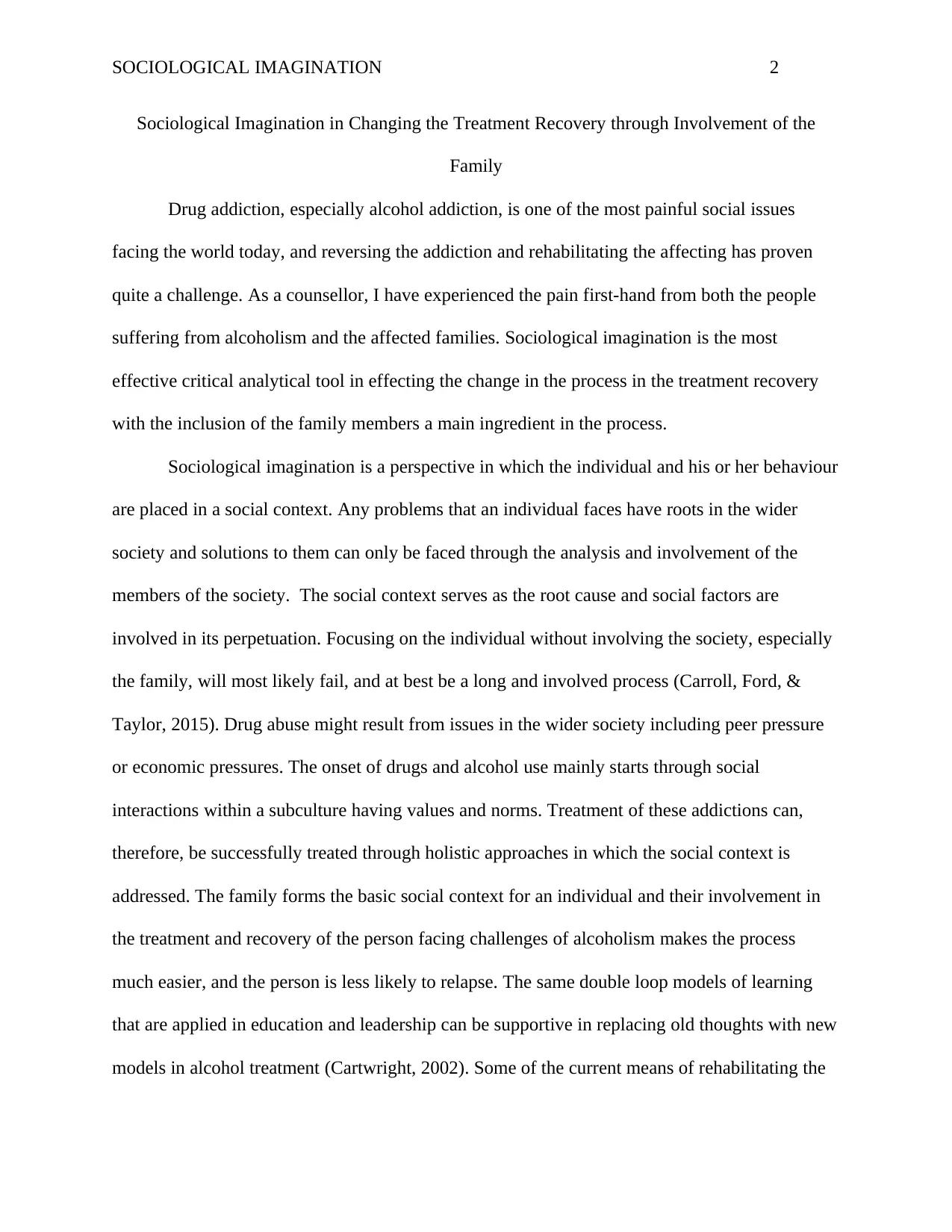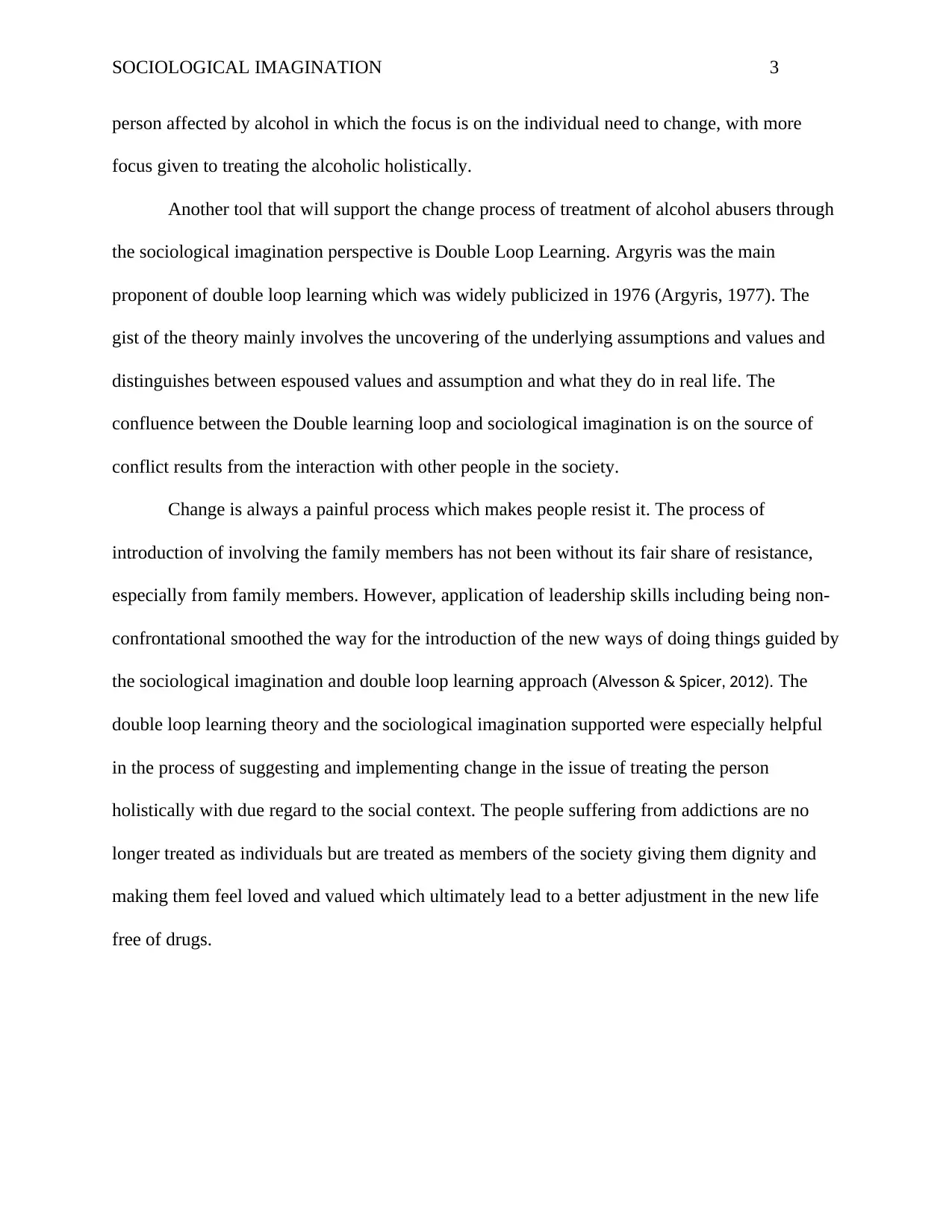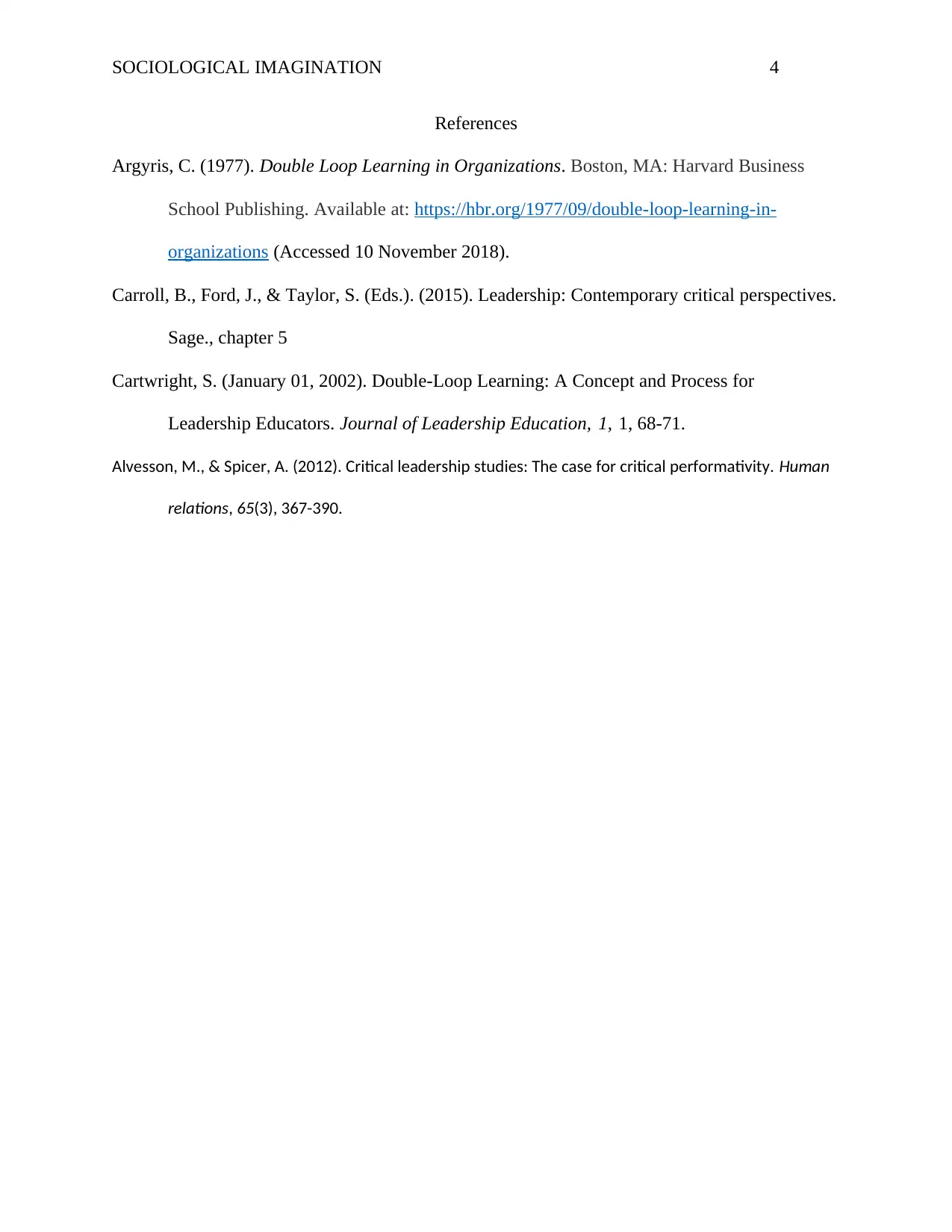Sociological Imagination: Family Involvement in Alcohol Treatment
VerifiedAdded on 2023/05/29
|4
|799
|108
Report
AI Summary
This report examines the application of sociological imagination within the context of professional leadership, specifically focusing on its impact on alcohol addiction treatment and recovery. The author, drawing from their experience as a counselor, emphasizes the limitations of individual-focused approaches and advocates for a more holistic approach that incorporates the social context, particularly the family. The report highlights sociological imagination as a crucial analytical tool for understanding how societal factors influence individual behavior and how interventions must address these broader influences. The author also discusses the use of double-loop learning to facilitate change within treatment processes and addresses the resistance to change, particularly from family members. The integration of family involvement is presented as a key component in improving treatment outcomes, fostering a supportive environment, and reducing the likelihood of relapse. The report concludes by emphasizing the importance of treating individuals with dignity and respect within a supportive social context to facilitate successful recovery.
1 out of 4











![[object Object]](/_next/static/media/star-bottom.7253800d.svg)